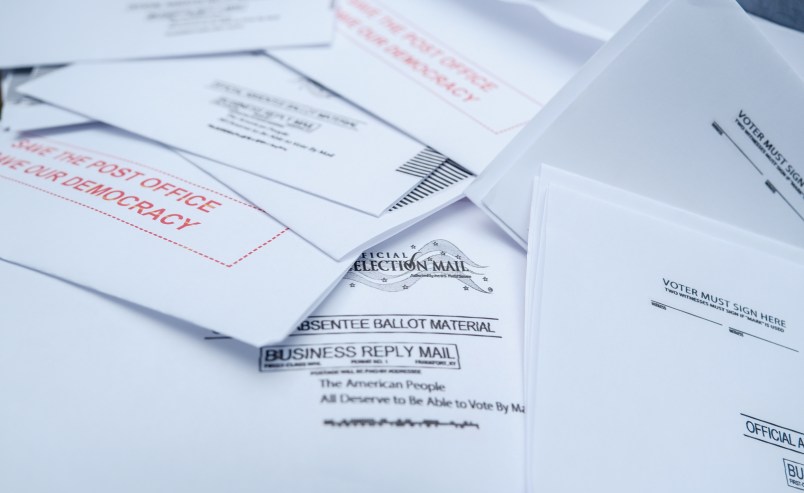The U.S. Postal Service enacted a rule this summer banning its clerks from signing mail-in ballots as witnesses while on duty, a restriction that can prevent the ballots from being counted.
The Anchorage Daily News reported on Tuesday that Alaska Division of Elections Director Gail Fenumiai had sent the USPS a letter last Thursday seeking an explanation for complaints that postal workers in her state had been telling voters they were not allowed to sign the ballots.
“This came as surprise to the state because we know in past elections postal officials have served as witnesses,” Fenumiai wrote. “Rural Alaska relies heavily on postal officials as they are often sometimes the only option for a witness.”
In fact, Alaska’s instructions on sending in ballots state that a postal worker counts as an “authorized official” who can sign on as a voter’s witnesses.
Per the Anchorage Daily News, USPS Principal Product Management Specialist Daniel Bentley sent the Alaska official a reply confirming the new restriction.
“Postal Employees are prohibited from serving as witnesses in their official capacity while on duty, due in part to the potential operational impacts,” Bentley wrote. “The Postal Service does not prohibit an employee from serving as a witness in their personal capacity off-duty, if they so choose.”
Alaska is one of several states that require people who vote by mail to have their ballots signed by a witness, otherwise the ballot will not be considered valid. Virginia, a key swing state, has the same requirement, though a judge allowed in May Virginia to waive the policy for voters concerned for their safety in the state’s primary elections.
The USPS did not respond to TPM’s request for comment at the time of writing.
The revelation comes as the USPS suffers a crisis of delays caused by General Postmaster Louis DeJoy’s controversial changes to the agency’s procedural policies. Under fire from lawmakers who accuse him of deliberately sabotaging the USPS on behalf of President Donald Trump, DeJoy announced on Tuesday that he was suspending his proposed changes until after the November elections.



